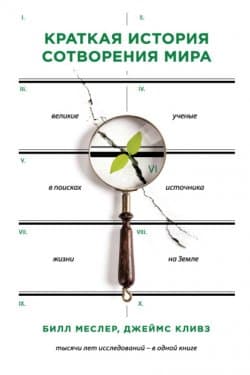Sapiens. Краткая история человечества - Юваль Ной Харари (2011)
-
Год:2011
-
Название:Sapiens. Краткая история человечества
-
Автор:
-
Жанр:
-
Язык:Русский
-
Страниц:231
-
Рейтинг:
-
Ваша оценка:
Homo sapiens сто тысяч лет назад являлся одним из шести видов человека, которые существовали на планете. Этот вид был ничем не примечательным животным, играющим в экосистеме небольшую роль, примерно такую как гориллы, светлячки, медузы. В хозяина мира вид Homo sapiens, около семидесяти тысяч лет назад, превратило загадочное изменение когнитивных способностей. Каким образом человеку разумному удалось покорить мир? Какова судьба других человеческих видов? В какой период и по какой причине возникли государства, религии, деньги? Как появлялись, рушились империи? По какой причине большинство народов ставили мужчин выше женщин? Как капитализм и наука стали в современной эпохе господствующими вероучениями? Люди становились с течением времени счастливее? Каково будущее человечества?
Юваль Харари рассказывает, как исторический ход влиял на общество и действительность вокруг него. Его произведение показывает связь между событиями, произошедшими в прошлом, и проблемами современности, что непременно заставляет читателя пересмотреть все устоявшиеся представления об окружающем мире.
Sapiens. Краткая история человечества - Юваль Ной Харари читать онлайн бесплатно полную версию книги
101 "National Institute of Food and Agriculture", United States Department of Agriculture, accessed December 10, 2010, gov/qlinks/extension.html.
102 Vaclav Smil, The Earth s Biosphere: Evolution, Dynamics, and Change (Cambridge, Mass.: MIT Press, 2002); Sarah Catherine Walpole et al., ‘The Weight of Nations: An Estimation of Adult Human Biomass’, BMC Public Health 12:439 (2012),
103 William T. Jackman, The Development of Transportation in Modern England (London: Frank Cass & со., 1966), 324–327; H. J. Dyos and D.H. Aldcroft, British Transport – An economic survey from the seventeenth century to the twentieth (Leicester: Leicester University Press, 1969), 124–131; Wolfgang Schivelbusch, The Railway Journey: The Industrialization of Time and Space in the 19th Century (Berkeley: Univeristy of California Press, 1986).
104 Подробное обсуждение беспрецедентного мира последних десятилетий см. в особенности Steven Pinker, The Better Angels of Our Nature: Why Violence Has Declined (New York: Viking, 2011); Joshua S. Goldstein, Winning the War on War: The Decline of Armed Conflict Worldwide (New York, N.Y.: Dutton, 2011); Gat, War in Human Civilization.
105 ‘World Report on Violence and Health: Summary, Geneva 2002’, World Health Organization, accessed December 10, 2010, int/whr/2001/en/whr01_annex_en.pdf. Уровень смертности в прежние эпохи см. Lawrence Н. Keeley, War before Civilization: The Myth of the Peaceful Savage (New York: Oxford University Press, 1996).
106 ‘World Health Report, 2004’, World Health Organization, 124, accessed 10 December, 2010,
107 Raymond C. Kelly, Warless Societies and the Origin of War (Ann Arbor: University of Michigan Press, 2000), 21. See also Gat, War in Human Civilization, 129–131; Keeley, War before Civilization.
108 Manuel Eisner, ‘Modernization, Self-Control and Lethal Violence’, British Journal of Criminology 41:4 (2001), 618–638; Manuel Eisner, ‘Long-Term Historical Trends in Violent Crime’, Crime and Justice: A Review of Research 30 (2003), 83-142; ‘World Report on Violence and Health: Summary, Geneva 2002’, World Health Organization, accessed December 10, 2010, ‘World Health Report, 2004’, World Health Organization, 124, accessed 10 December, 2010,
109 Napoleon Chagnon, Yanomamo: The Fierce People (New York: Holt, Rinehart and Winston, 1968); Keeley, War before Civilization.
110 О психологии и биохимии счастья полезно почитать: Jonathan Haidt, The Happiness Hypothesis: Finding Modern Truth in Ancient Wisdom (New York: Basic Books, 2006); R. Wright, The Moral Animal: Evolutionary Psychology and Everyday Life (New York: Vintage Books, 1994); M. Csikszentmihalyi, ‘If We Are So Rich, Why Aren’t We Happy?’, American Psychologist 54:10 (1999): 821–827; F. A. Huppert, N. Baylis and B. Keverne, ed., The Science of Well-Being (Oxford: Oxford University Press, 2005);
Michael Argyle, The Psychology of Happiness, 2nd edition (New York: Routledge, 2001); Ed Diener (ed.), Assessing Well-Being: The Collected Works of Ed Diener (New York: Springer, 2009); Michael Eid and Randy }. Larsen (eds.), The Science of Subjective Well-Being (New York: Guilford Press, 2008); Richard A. Easterlin (ed.), Happiness in Economics (Cheltenham: Edward Elgar Pub., 2002); Richard Layard, Happiness: Lessons from a New Science (New York: Penguin, 2005).
111 Kahneman et al., “A Survey Method for Characterizing Daily Life experience: The Day Reconstruction Method”, Science 3 (2004): 1776–1780; Inglehart et al., "Development, Freedom, and Rising Happiness," 278–281.
112 D. M. McMahon, The Pursuit of Happiness: A History from the Greeks to the Present (London: Allen Lane, 2006).
 Библия. Синодальный перевод РБО
Библия. Синодальный перевод РБО
 Краткая история сотворения мира. Великие ученые в поисках источника жизни на Земле Билл Меслер, Джеймс Кливз
Краткая история сотворения мира. Великие ученые в поисках источника жизни на Земле Билл Меслер, Джеймс Кливз
 Древние цивилизации Евразии. Исторический путь от возникновения человечества до крушения Римской империи Честер Старр
Древние цивилизации Евразии. Исторический путь от возникновения человечества до крушения Римской империи Честер Старр
 Онтогенез. От клетки до человека Джейми Дейвис
Онтогенез. От клетки до человека Джейми Дейвис
 Сквозь зеркало языка. Почему на других языках мир выглядит иначе Гай Дойчер
Сквозь зеркало языка. Почему на других языках мир выглядит иначе Гай Дойчер
 Как начинались великие религии. История духовной культуры человечества Джозеф Гаер
Как начинались великие религии. История духовной культуры человечества Джозеф Гаер

 Наследник
Наследник  Пир теней
Пир теней  Князь во все времена
Князь во все времена  Когда порвется нить
Когда порвется нить 



